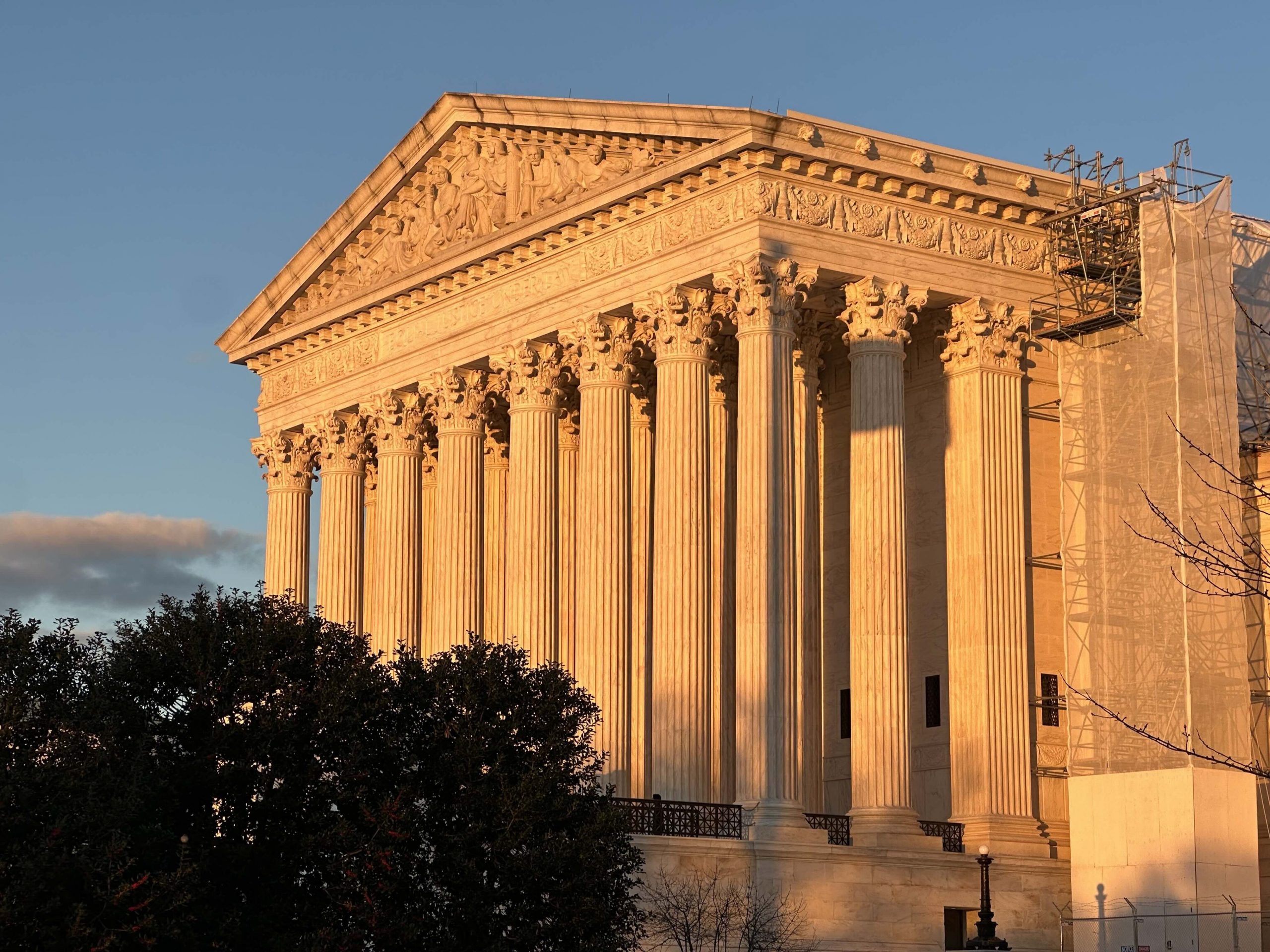Court sympathetic to NRA’s free speech claim


The Supreme Court on Monday appeared sympathetic to the National Rifle Association’s claim that a New York official violated the group’s right to freedom of speech when she urged banks and insurance companies that worked with the NRA to cut ties with the group. During just over an hour of oral arguments, justices of all ideological stripes seemed inclined to allow the NRA’s claim to go forward.
The dispute began seven years ago, when New York’s Department of Financial Services, which regulates banks and insurance companies in the state, opened an investigation into NRA-endorsed insurance programs to provide coverage for injuries caused by guns.
One year later, three insurance companies acknowledged that some of the NRA-endorsed programs violated state law, and they agreed not to provide any such programs to New York residents and to pay fines of up to $7 million.
After the 2018 shooting at a high school in Parkland, Fla., caused the death of 17 students and staff, Maria Vullo – the head of the department – issued a press statement and “guidance” letters calling on banks and insurance companies to consider the risks to their reputations of doing business with organizations that promote guns.
Several insurance companies stopped doing business with the NRA, and some banks withdrew their bids for the group’s business. That prompted the NRA to file a lawsuit against Vullo in federal court, arguing that she violated the group’s First Amendment right by threatening the companies and banks to sever their ties with the group.
A federal district court allowed the NRA’s claim to go forward. But the U.S. Court of Appeals for the 2nd Circuit reversed, holding that the NRA had “failed to plausibly allege that Vullo crossed the line between attempts to convince and attempts to coerce.” Moreover, the court of appeals ruled, Vullo was entitled to immunity because the law governing the NRA’s First Amendment claim was not clearly established.
The NRA came to the Supreme Court, which agreed last year to weigh in.
Representing the NRA, David Cole of the American Civil Liberties Union characterized the case as a “straightforward” application of the court’s 1963 decision in Bantam Books v. Sullivan, holding that “informal, indirect government efforts to suppress or penalize speech by threatening private intermediaries violate the First Amendment.”
In this case, he said, Vullo’s actions were “not about enforcing insurance law or mere government speech.” Instead, Cole stressed, the case centers on “a campaign by the state’s highest political officials to use their power to coerce a boycott of a political advocacy organization because they disagreed with its advocacy.”
Neal Katyal, representing Vullo, countered that the “key fact in this case is the conceded illegal conduct”: The insurance companies and the NRA were selling an illegal product. The “obvious explanation” for Vullo’s behavior in this case is that she was “enforcing the law.” And if the court allows the NRA’s lawsuit to go forward, he cautioned, it will allow others to bring lawsuits to block valid enforcement actions.
Justice Samuel Alito pressed Cole to better define “coercion.” Alito described a “spectrum,” with threats of legal action at one end as an example of “very clear coercion” and, at the other end, a scenario in which a government official does not have any power but suggests that a person or entity should do something. “And in between,” Alito continued, “there are a lot of different gradations, particularly when the official who’s making this request has that power” and the entity or person of whom the request is being made knows that the official has the power – “just as I am sure that these insurance companies were well aware of the power of Ms. Vullo,” Alito added.
One question with which the justices grappled was which of Vullo’s actions, if any, are relevant to the NRA’s First Amendment claim. The Biden administration had urged the justices to focus on the group’s allegations about Vullo’s 2018 meetings with Lloyd’s of London, at which Vullo supposedly pressured the company to end its relationship with the NRA.
Cole encouraged the justices to take a broader lens, contending that “the most significant harm to the NRA is that the DFS continues to maintain on its website these guidance letters, which essentially put a scarlet letter on the NRA with respect to every bank and every insurance company in New York. These should be taken down,” Cole insisted.
Katyal took the opposite stance. He agreed that the court “should absolutely look at … all the different conduct together.” But, he contended, none of the different pieces, standing alone, added up to “something that’s coercive. And together, they don’t add up to something that’s coercive.”
Cole also pushed back against Vullo’s contention that the case should be dismissed because the Supreme Court was not reviewing the lower court’s conclusion that Vullo was entitled to qualified immunity, so that any ruling on whether Vullo had violated the group’s First Amendment rights would not affect the lower court’s judgment. If the court reverses the ruling by the court of appeals and holds that the NRA has stated a First Amendment claim, Cole reasoned, it should send the case back to the 2nd Circuit to reconsider its ruling on qualified immunity, which Vullo has said is “inextricably intertwined” with the First Amendment question.
Cole closed by telling the justices that “the notion that this is business as usual, for a government official to speak with a private party and say we’ll go easy on you if you aid my campaign to weaken the NRA. That is not business as usual. That is not ordinary plea negotiation.” Although it was not entirely clear, a majority of the justices seemed to agree with him.
A decision in the case is expected by summer.
This article was originally published at Howe on the Court.
Posted in Merits Cases
Cases: National Rifle Association of America v. Vullo